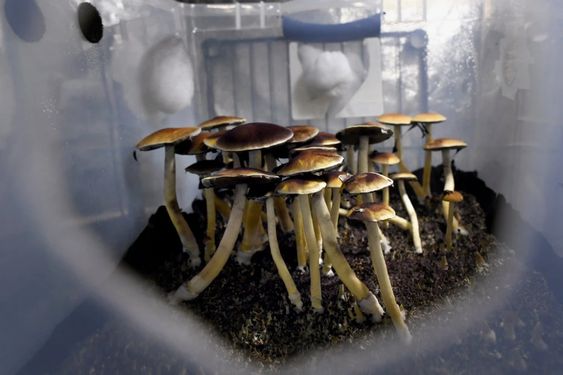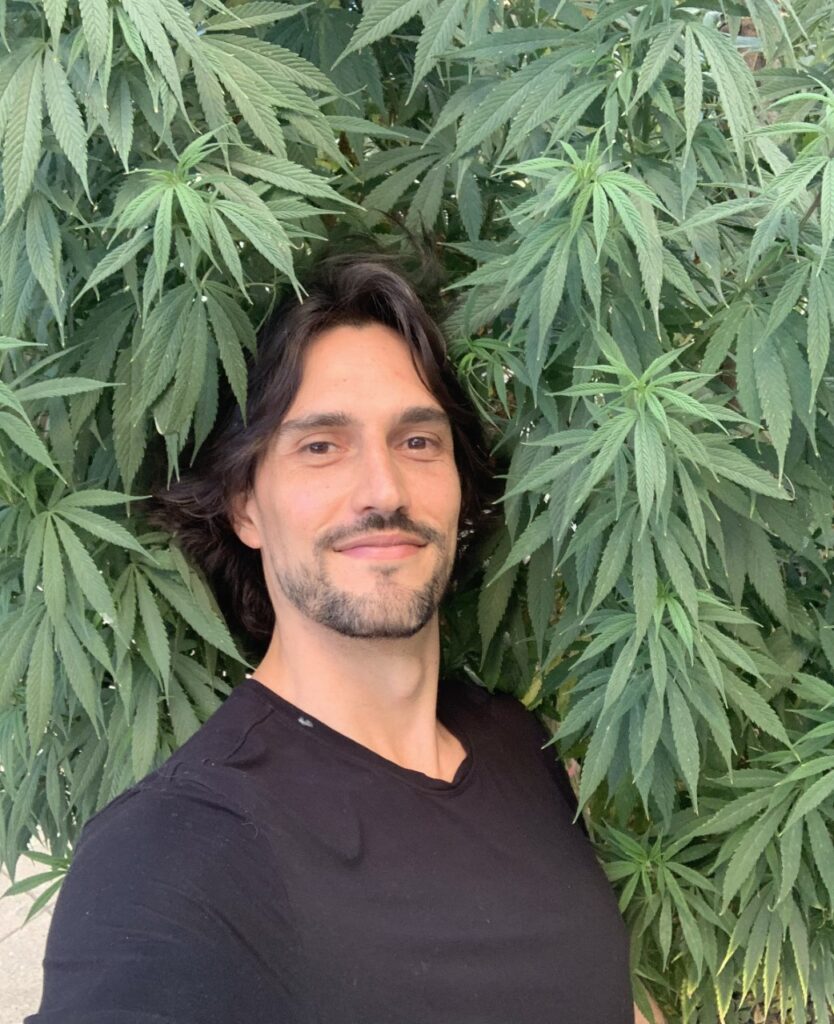Disclaimer: This blog contains the mentioning of psychedelic drugs including LSD, magic mushrooms, the peyote plant, marijuana, and more. This blog is written with the intent of educational purposes only. CADA and Santiago Rodriguez Tarditi do not condone the illegal use of psychedelics. This blog is only meant for adults 21 years or older.
The conversation surrounding psychedelics has always conveyed many perspectives and opinions. Education surrounding psychedelics has been kept to a minimum, westernized view in most areas of America. LSD, magic mushrooms, the peyote plant, and others often carry stigmas questioning their healing properties. In this blog, I want to stick our toes into the history of psychedelics, psychotherapy, and drug advocacy with Santiago Rodriguez Tarditi.
“Psychedelics are great tools to recognize non-duality as a guiding principle of life while allowing us to connect with the deepest sense of love.”
– Santiago Rodriguez Tarditi
Light History
Psychedelics have a long history with humankind than we may think. Elisa Guerra- Doce, a professor of prehistory at the University of Valladolid, discovered that psychedelics like the San Pedro cactus, magic mushrooms, and opium poppy were all consumed by humans since prehistoric times. This information explains that the relationship between people and psychedelics is centuries long.
The creation of psychedelics happens in nature, but some may think that LSD is technically human-made. In 1938, LSD was discovered by Albert Hofmann while trying to develop a blood stimulant from ergot fungus. Even though Hofmann created acid in a lab, the psychedelic properties were extracted from the fungus, making the psychedelic properties organic.
Psychedelics went through many studies in the 40s, 50s, and 60s to test their healing properties. Unfortunately, ongoing studies were put to a halt in the 1970s due to the War on Drugs. It seemed we would not know the extensive truth about psychedelic healing properties until now.
The Future of Psychedelic Research
While the fight for psychedelic research continues, we may wonder what the future may bring for psychotherapy. John Hopkins is one company that has been committed to the cause for over a decade now. In the year 2000, the company’s research group was the first to receive US government approval for their psychedelic testing. In 2019, John Hopkins announced the opening of their new research center, “The Center for Psychedelic and Consciousness Research at Johns Hopkins Medicine in Baltimore.“

Not only was this a massive step towards actual research, but it makes waves historically. Since the opening of this new facility, John Hopkins has released many discoveries to the public. In November of last year, John Hopkins shared their recent study to treat major depression with psilocybin produced “rapid and large reductions in depressive symptoms.” As future studies continue, they could change the stigmas surrounding psychedelics with proven scientific research.
Santiago Rodriguez Tarditi
If there is one person I need to discuss psychedelics with, it’s Santiago Rodriguez Tarditi. Santiago has an extensive amount of knowledge about psychedelics. He is also an activist for drug policy, a writer against injustice, a business owner, and much more. He studied political science which allowed him to conduct his own research into psychedelics. His passion began from his childhood experiences in Colombia as the failed drug war increased conflict in this environment.
“Over the years, I began to investigate oppressive laws and measures that were targeting BIPOC communities worldwide.” As he grew older, he developed a spiritual connection with plant medicine. “I believe nature has all the answers and cures we’re looking for; at a time when mental health and spiritual development are becoming more and more important, it’s important that we decriminalize, regulate, and legalize the consumption of psychedelics.”
We live in a time where most of our opinions on topics like drugs come from politicians. Santiago reminds us that these plants have been here longer than any government agenda. It is important to note that the use of psychedelics was common practice in Indigenous communities. When the War on Drugs began, it impacted these communities harshly.
“Most of these plants became illegal due to racist, classist, and political reasons. Throughout the centuries, colonialists and religious evangelizers prohibited the use of entheogens,(the name roughly translates to ‘the god within’), to suppress nature and folk traditions.”

When I asked Santiago how psychedelic plants can improve your health, he stated, “Psychedelics act on our bodies and nervous system in many different ways. Some result in direct physical effects, i.e., cannabinoids in marijuana have anti-inflammatory properties that help treat several conditions like epileptic seizures. Others act in the way our brains operate, i.e., ketamine, an anesthetic that promotes neural synaptic growth in the hippocampus and prefrontal cortex. These areas are responsible for our mood and memory.”
Main Takeaways
It is essential to do your research from credible sources to decide what psychedelic is suitable for your condition. However, be aware that despite the wave towards legalization, these drugs are still highly illegal. Santiago continued by stating, “Each condition requires different substances. I prefer sticking to natural psychedelics taken in sacred locations following ancestral rituals. Still, I believe that the new wave of decriminalization and legalization will open up the possibilities to many people who have struggled with mental health.”
The future of psychedelic treatment relies on undoing the harm caused by the war on drugs and creating a new system to regulate psychedelic medicine. Santiago hopes these drugs will eventually be legalized, creating a market where they’re quality controlled, taxed, and provided to the community to promote growth personally and communally in the future.

Visit Intū Lab for natural CBD products
We want to thank Santiago Rodriguez Tarditi for sharing his knowledge with us in this blog. What new information did you learn in this blog? Do you believe psychedelic research could lead to a breakthrough in mental health treatment? Let us know in the comments and on our Instagram @cada_culture.

